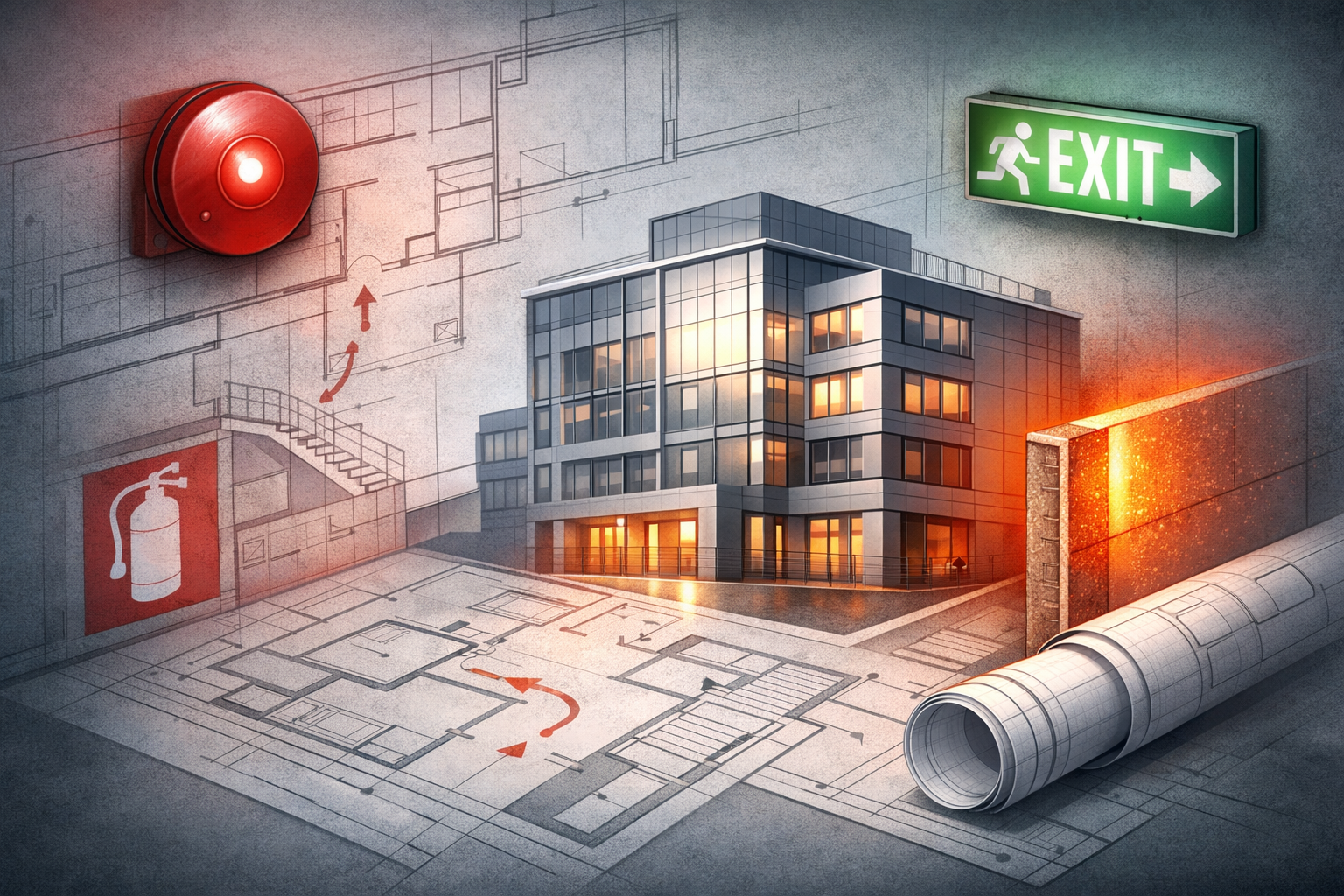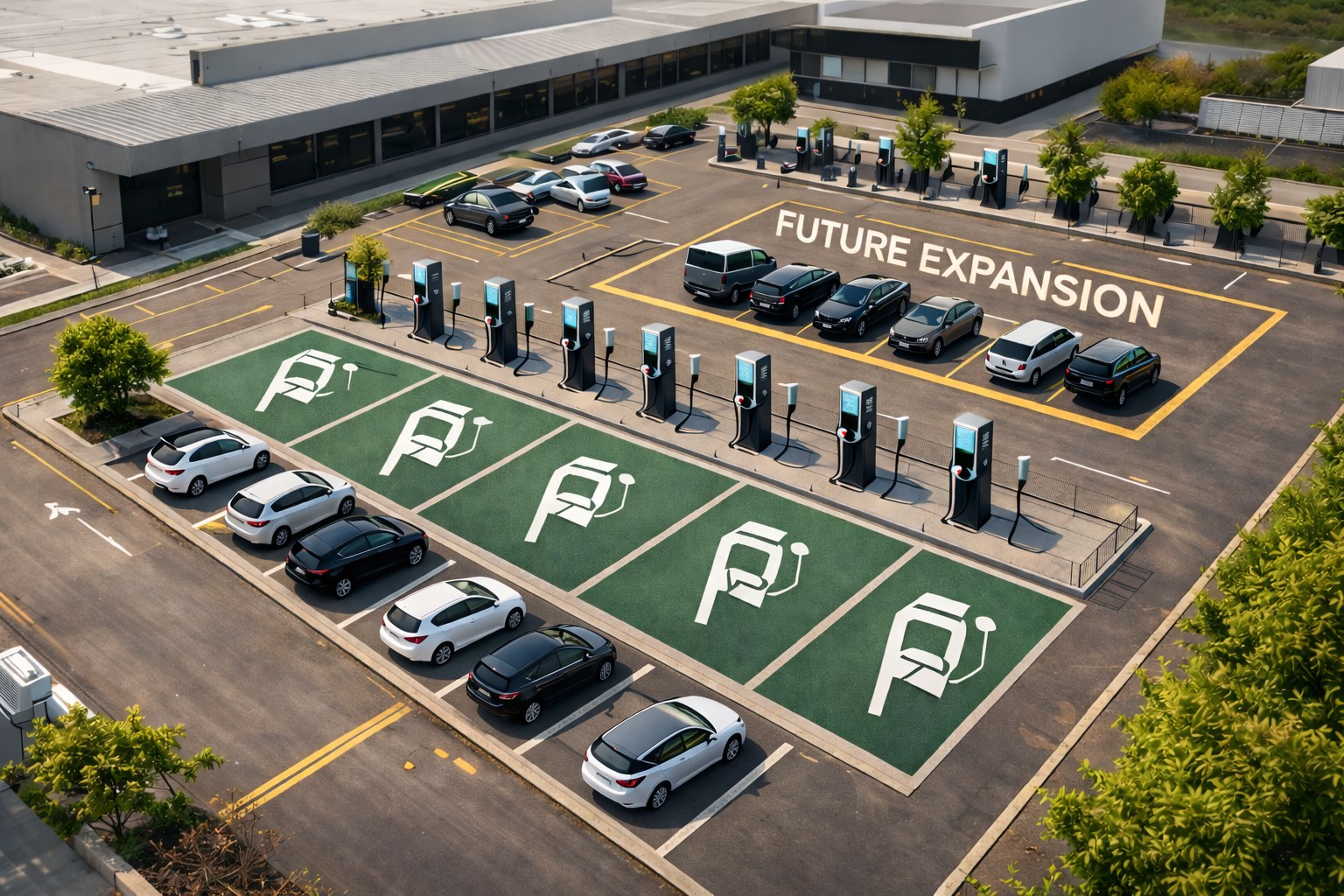As energy prices continue to rise in the UK, businesses are facing mounting pressure to reduce their energy consumption and cut costs. One of the most effective ways to do this is by upgrading the energy efficiency of their commercial buildings. By doing so, businesses can not only save money on energy bills but also contribute to reducing the UK’s carbon footprint.
In this Highland Services blog post, we will explore the top 5 benefits of upgrading your commercial building's energy efficiency, and provide some tips on how to improve building energy efficiency. With a little investment, commercial building owners and managers can save money and reduce their impact on the environment.
Benefit 1: Cost Savings
Upgrading the energy efficiency of a commercial building can lead to significant cost savings in the long run. The costs of operating a building, including energy expenses, can be a significant portion of a company's budget. By reducing energy consumption through energy-efficient upgrades, the costs of running the building can be lowered.
These upgrades can range from simple measures like sealing air leaks and adding insulation to more comprehensive projects such as upgrading heating and ventilation systems, installing smart lighting and building automation systems.
Cost-Saving Benefits of Energy Efficiency
According to the Carbon Trust, businesses in the UK could reduce their energy costs by up to 20% by implementing energy-efficient measures.
In addition, a report by the UK government found that energy-efficient buildings have a higher value in the market, and can be sold or leased at a premium price. This means that investing in energy-efficient upgrades not only saves money in the long term but also adds value to the building.

How to Reduce Energy Consumption in Commercial Buildings
Reducing energy consumption in commercial buildings can be achieved through several methods. The first step is to conduct an energy audit to identify areas of energy waste and develop a plan for energy-efficient upgrades. Simple measures such as using energy-efficient lighting, implementing motion sensors, and upgrading heating & ventilation systems can have a significant impact on energy consumption.
Building automation systems can also be used to monitor and manage energy consumption in real time, providing businesses with valuable insights into their energy usage. By implementing these measures, businesses can save money and reduce their environmental impact.
Benefit 2: Environmental Sustainability
Upgrading a commercial building's energy efficiency can have a significant impact on the environment. By using less energy, buildings can reduce their carbon footprint and lower greenhouse gas emissions. Energy-efficient buildings also require less energy production, which can help reduce the demand for fossil fuels and promote a transition to cleaner energy sources.
Environmental Benefits of Energy Efficiency
In the UK, buildings account for about 30% of total energy consumption and 27% of carbon dioxide emissions. By improving energy efficiency in commercial buildings, the UK can make significant progress in achieving its climate targets.
According to the UK Green Building Council, energy-efficient buildings can reduce carbon emissions by up to 50% and energy consumption by up to 60%.
How to Improve a Building’s Energy Efficiency and Reduce Its Carbon Footprint
Improving a building's energy efficiency can be achieved through a variety of methods. One of the most effective ways to reduce energy consumption is by investing in building insulation, which can help maintain a comfortable indoor temperature while reducing the need for heating or cooling.
Switching to LED lighting and investing in energy-efficient appliances can also reduce energy usage. Regular maintenance and tune-ups of heating and ventilation systems can also help optimize energy use.
Finally, promoting energy-saving behaviours such as turning off lights when not in use or shutting down computers and appliances when not in use can also have a significant impact on energy consumption.

Benefit 3: Improved Comfort and Productivity
Upgrading a commercial building's energy efficiency not only helps the bottom line but also can improve the overall comfort and productivity of the building's occupants. By optimizing building systems such as heating, ventilation, lighting, and insulation, energy efficiency upgrades can help maintain consistent and comfortable temperatures, reduce drafts and noise, and improve indoor air quality. This creates a more pleasant and productive environment for building occupants.
The Comfort and Productivity Benefits of Energy Efficiency
Studies have shown that improving a building's energy efficiency can lead to increased productivity and job satisfaction among building occupants. For example, a study by the World Green Building Council found that better indoor air quality and thermal comfort can improve worker productivity by up to 11%.
In addition, a survey by the Building Owners and Managers Association (BOMA) found that over 80% of building occupants identified thermal comfort and air quality as key factors in their satisfaction with their work environment.
How to Optimise a Building’s Energy Efficiency for Occupant Comfort and Productivity
To optimise a building's energy efficiency for occupant comfort and productivity, it is important to consider factors such as temperature, humidity, and ventilation. By installing programmable thermostats, improving insulation, and properly sealing air leaks, building owners can help maintain consistent and comfortable temperatures while reducing energy waste.
In addition, installing efficient lighting systems and incorporating natural light sources can help create a more pleasant and productive workspace. Finally, regular maintenance and cleaning of heating and ventilation systems can help improve indoor air quality and reduce the spread of airborne contaminants, leading to a healthier and more comfortable environment for building occupants.

Benefit 4: Increased Property Value
As a commercial building owner, it's important to consider the long-term value of your property. Upgrading your building's energy efficiency can have a positive impact on its market value. By increasing the building's energy efficiency, you not only reduce operating costs but also create a more attractive asset for potential buyers or tenants.
According to a study by the Royal Institution of Chartered Surveyors (RICS), an energy-efficient building can increase its value by up to 16%.
How to Improve a Building’s Energy Efficiency and Increase Its Market Value
To increase your property's value, consider implementing energy-efficient upgrades such as LED lighting, smart heating and insulation. These upgrades not only save energy and reduce operating costs but also make your building more attractive to tenants and buyers.
Additionally, an energy-efficient building can help you stand out in the competitive commercial property market, potentially attracting higher-paying tenants or buyers. By investing in energy efficiency, you are not only improving the environment and reducing costs but also adding value to your property for years to come.
Benefit 5: Regulatory Compliance and Tax Incentives
Improving a commercial building's energy efficiency not only provides a range of benefits but can also help the building meet regulatory compliance and take advantage of tax incentives.
Many UK regulations require commercial buildings to meet certain energy efficiency standards, and energy efficiency upgrades can help meet those standards. In addition, UK government tax incentives exist to encourage commercial building owners to invest in energy efficiency upgrades.

Regulatory and Tax Benefits of Energy Efficiency
According to a report by the UK Green Building Council, energy-efficient buildings can reduce carbon emissions and save businesses up to £570 million per year. Additionally, according to the Carbon Trust, the UK government offers tax incentives, such as Enhanced Capital Allowances, to encourage commercial building owners to invest in energy efficiency upgrades.
How to Navigate Regulatory Compliance and Tax Incentives Related to Energy Efficiency Upgrades
Navigating regulatory compliance and tax incentives related to energy efficiency upgrades can be complex. To take advantage of tax incentives, commercial building owners must ensure that the upgrades meet the UK government's energy efficiency standards.
It's essential to work with experienced professionals who understand the regulations and can guide building owners through the process. Additionally, energy assessments can identify areas where the building is not compliant and provide recommendations on how to improve its energy efficiency.
Summary
As businesses strive to reduce costs, lower carbon footprint, and improve building occupant comfort and productivity, upgrading commercial building energy efficiency has become increasingly popular.
In this post, we've highlighted the top five benefits of energy efficiency upgrades for commercial buildings, including:
- cost savings,
- environmental sustainability,
- improved comfort and productivity,
- increased property value,
- regulatory compliance and tax incentives.
We encourage building owners and managers to consider energy efficiency upgrades. With the right strategy and investments, they can save money, reduce environmental impact, and create a more comfortable and productive work environment.
If you're a building owner or manager looking to reap the benefits of improved energy efficiency in your commercial building, don't hesitate to contact us for a free quote on energy efficiency upgrades. Our team of experts can provide you with a custom solution to meet your building's unique needs and help you save money, reduce your environmental impact, and increase your property value.



.png)